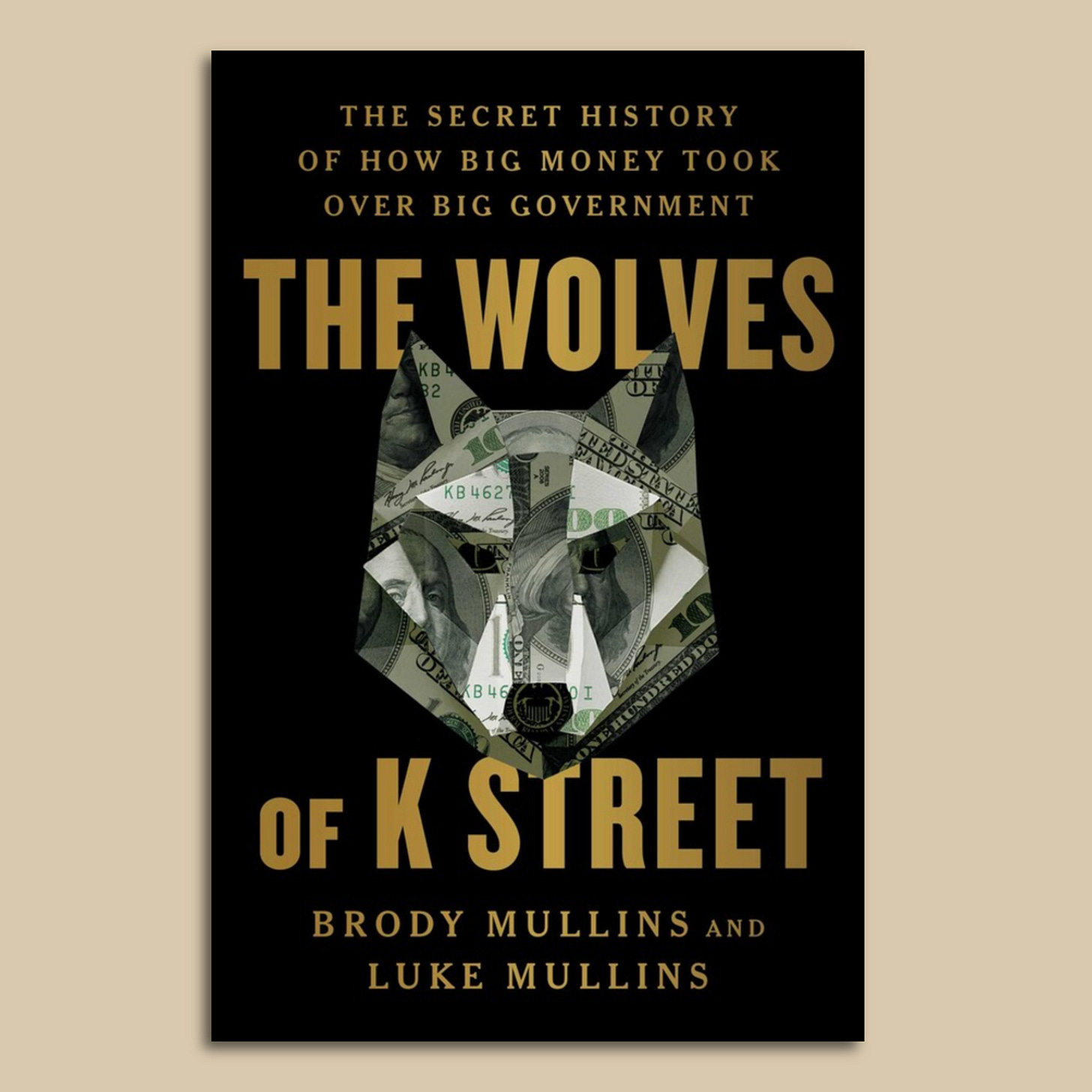How lobbyists took over Washington
It wasn't always this way!
I have known Brody and Luke Mullins for a very long time. They are both Washington mainstays — two of the best investigative reporters in the business.
Which meant I was VERY much looking forward to their new book: “The Wolves of K Street.” It’s the history of lobbying in Washington, a story of how unelected power brokers took over politics and policy.
If…
Keep reading with a 7-day free trial
Subscribe to So What to keep reading this post and get 7 days of free access to the full post archives.


